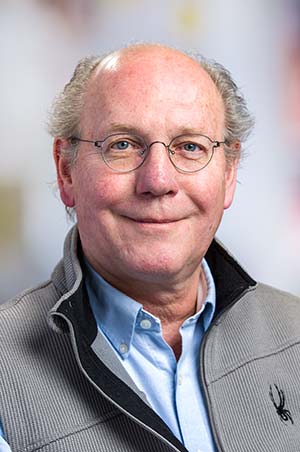Stephen Tapscott, MD, PhD
Professor
Human Biology Division, Fred Hutch
Professor
Clinical Research Division, Fred Hutch
Member
Translational Data Science Integrated Research Center (TDS IRC), Fred Hutch
Dr. Stephen Tapscott studies how genes are turned on and off and how this activity goes awry in certain diseases. He focuses on the activity of certain “master” genes that control the development of muscle and nerve cells. He is a leader in understanding how the normal process of cell development is altered in two diseases: muscular dystrophy, a class of inherited diseases in which muscles weaken and atrophy over time; and rhabdomyosarcoma, a type of cancer that arises from muscle cells. Dr. Tapscott’s team made a breakthrough in unlocking the molecular secrets behind one of the most common forms of muscular dystrophy, facioscapulohumeral dystrophy, or FSHD. Dr. Tapscott found that in people with FSHD, proteins normally present in early development are erroneously activated in muscle cells, which prevents muscle-cell regeneration and possibly triggers a damaging immune attack against the muscles.
Other Appointments & Affiliations
Professor, Neurology, University of Washington School of MedicineProfessor, Neurology
University of Washington School of Medicine
Education
MD, University of Pennsylvania, 1982
PhD, University of Pennsylvania, 1982
BA, Hampshire College, 1975
Research Interests
The Tapscott Lab studies gene transcription and expression in normal development and disease, with an additional emphasis on rhabdomysarcomas (cancers with characteristics of skeletal muscle) and human muscular dystrophies. Other research areas include gene and cell therapies for muscular dystrophy, and the biology of triplet repeats and their associated diseases.
